1. Introduction
A. Importance of mortgage rates in the housing market
Mortgage rates are one of the most important factors that influence the housing market. When mortgage rates are low, more people can afford to buy a home, which can lead to an increase in home prices. Conversely, when mortgage rates are high, fewer people can afford to buy a home, which can lead to a decrease in home prices.
B. Overview of the factors influencing mortgage rates
There are a number of factors that can influence mortgage rates, including:
- The Federal Reserve’s monetary policy: The Federal Reserve is the central bank of the United States, and it sets the federal funds rate, which is the interest rate that banks charge each other for overnight loans. The federal funds rate is a major driver of mortgage rates.
- The economy: The overall health of the economy can also affect mortgage rates. When the economy is strong, there is more demand for loans, which can lead to higher mortgage rates. Conversely, when the economy is weak, there is less demand for loans, which can lead to lower mortgage rates.
- Inflation: Inflation is the rate at which prices are rising, and it can also affect mortgage rates. When inflation is high, the Federal Reserve may raise the federal funds rate in an effort to cool the economy. This can lead to higher mortgage rates.
- Demand for mortgages: The demand for mortgages can also affect mortgage rates. When there is a lot of demand for mortgages, lenders may be more willing to offer lower rates in order to attract borrowers. Conversely, when there is less demand for mortgages, lenders may be less willing to offer low rates.
C. Purpose of the blog post to discuss potential trends for mortgage rates in the USA in 2023
The purpose of the blog post is to discuss potential trends for mortgage rates in the USA in 2023. The post will discuss the factors that are likely to influence mortgage rates in 2023, and it will provide some predictions about what mortgage rates might look like in the coming year.
The post will also discuss the implications of these trends for homeowners and potential homeowners. For example, if mortgage rates are expected to increase in 2023, homeowners may want to consider refinancing their mortgages in order to lock in a lower rate. Potential homeowners may also want to consider buying a home sooner rather than later, if they are concerned about rising mortgage rates.
2. Understanding Mortgage Rates
A. Definition of mortgage rates and how they work
A mortgage rate is the interest rate that a borrower pays to a lender when they take out a mortgage loan. The mortgage rate is typically expressed as an annual percentage rate (APR), which includes both the interest rate and any other fees associated with the loan.
Mortgage rates are determined by a number of factors, including the borrower’s credit score, the amount of the loan, the length of the loan, and the current market conditions. The Federal Reserve’s monetary policy also plays a role in determining mortgage rates.
B. Relationship between mortgage rates and the Federal Reserve’s monetary policy
The Federal Reserve’s monetary policy is the set of actions that the Fed takes to influence the money supply and interest rates in the economy. The Fed’s monetary policy can have a significant impact on mortgage rates.
When the Fed lowers interest rates, it makes it less expensive for borrowers to borrow money. This can lead to lower mortgage rates. Conversely, when the Fed raises interest rates, it makes it more expensive for borrowers to borrow money. This can lead to higher mortgage rates.
C. Historical trends of mortgage rates in the USA
The historical trends of mortgage rates in the USA have been volatile. Mortgage rates have been as high as 18% in the early 1980s and as low as 3.3% in 2012.
The following table shows the historical trends of mortgage rates in the USA:
| Year | Average Mortgage Rate |
|---|---|
| 2023 | 5.2% |
| 2022 | 3.3% |
| 2021 | 2.9% |
| 2020 | 3.1% |
| 2019 | 3.7% |
| 2018 | 4.5% |
| 2017 | 4.7% |
| 2016 | 4% |
Additional pointers:
- Mortgage rates are not the only factor that affects the cost of a mortgage. Other factors, such as the down payment, the length of the loan, and the property taxes, can also affect the cost of a mortgage.
- It is important to shop around for the best mortgage rate. Different lenders offer different rates, so it is important to compare rates before you choose a lender.
- You can use a mortgage calculator to estimate your monthly mortgage payment. This can help you determine how much you can afford to borrow.
3. Current Economic and Housing Market Situation
A. Overview of the current economic indicators and GDP growth projections
The US economy is currently facing a number of challenges, including high inflation, rising interest rates, and the ongoing war in Ukraine. However, there are also some positive signs, such as strong job growth and a low unemployment rate.
The GDP growth projection for 2023 is 2.3%, which is down from 5.7% in 2022. This is due to a number of factors, including the war in Ukraine, rising inflation, and the Federal Reserve’s efforts to raise interest rates.
B. Analysis of the housing market conditions and trends
The housing market is currently experiencing a slowdown, as rising interest rates and inflation are making it more expensive to buy a home. However, there is still strong demand for homes, and home prices are still rising.
The median home price in the US is currently $428,700, which is up 19% year-over-year. The inventory of homes for sale is also very low, which is putting upward pressure on prices.
C. Impact of inflation and consumer price index on mortgage rates
Inflation is currently at a 40-year high, and the consumer price index (CPI) is also rising. This is putting upward pressure on mortgage rates, as lenders are raising rates in an effort to keep pace with inflation.
The average 30-year fixed mortgage rate is currently 5.2%, which is up from 3.3% a year ago. This increase in mortgage rates is making it more expensive to buy a home, and it is also slowing down the housing market.
Additional pointers:
- The current economic and housing market situation is fluid, and it is important to stay up-to-date on the latest developments.
- If you are considering buying a home, it is important to factor in the rising interest rates and inflation.
- You may want to consider waiting until the housing market cools down before you buy a home.
4. Federal Reserve’s Monetary Policy
A. Explanation of the Federal Reserve’s role in setting interest rates
The Federal Reserve is the central bank of the United States. It is responsible for setting monetary policy, which is the set of actions that the Fed takes to influence the money supply and interest rates in the economy.
The Fed’s monetary policy can have a significant impact on the economy. For example, when the Fed lowers interest rates, it makes it less expensive for businesses and consumers to borrow money. This can lead to increased investment and spending, which can boost economic growth.
B. Examination of the Federal Reserve’s recent statements and rate hike projections
In recent months, the Federal Reserve has signaled that it is likely to raise interest rates several times in 2023. This is in an effort to combat rising inflation.
In March 2023, the Fed raised interest rates by 0.25%. This was the first rate hike since 2018. The Fed has also signaled that it is likely to raise rates by another 0.25% in June 2023 and by another 0.50% in July 2023.
C. Speculation on how the Federal Reserve’s actions may affect mortgage rates in 2023
The Federal Reserve’s actions are likely to lead to higher mortgage rates in 2023. This is because when the Fed raises interest rates, it makes it more expensive for lenders to borrow money. This, in turn, leads to higher mortgage rates for borrowers.
According to the Mortgage Bankers Association, the average 30-year fixed mortgage rate is expected to reach 5.7% by the end of 2023. This would be the highest level since 2008.
Additional pointers:
- The Federal Reserve’s monetary policy is a complex issue, and there is no guarantee that the Fed’s actions will have the desired effect of taming inflation.
- The impact of the Fed’s actions on mortgage rates will also depend on other factors, such as the demand for housing and the supply of homes for sale.
- It is important to stay up-to-date on the latest developments in the economy and the housing market so that you can make informed decisions about your finances.
5. Predictions and Forecasts for 2023
A. Analysis of various economists’ predictions on mortgage rates
A number of economists have made predictions about mortgage rates in 2023. Some economists believe that mortgage rates will continue to rise, while others believe that they will start to fall.
According to a recent survey by the Mortgage Bankers Association, the average 30-year fixed mortgage rate is expected to reach 5.7% by the end of 2023. This would be the highest level since 2008.
However, some economists believe that mortgage rates will start to fall in 2023. For example, Mark Zandi, chief economist at Moody’s Analytics, believes that mortgage rates could fall to 4.5% by the end of 2023.
B. Comparison of different financial institutions’ forecasts for 2023
A number of financial institutions have also made forecasts for mortgage rates in 2023. These forecasts vary, but they all point to higher mortgage rates in the coming year.
For example, Freddie Mac predicts that the average 30-year fixed mortgage rate will reach 5.5% by the end of 2023. Meanwhile, Wells Fargo predicts that the average rate will reach 5.8%.
C. Factors influencing the differing projections
There are a number of factors that could influence mortgage rates in 2023. These include:
- The Federal Reserve’s monetary policy: The Fed is expected to continue raising interest rates in 2023 in an effort to combat inflation. This could lead to higher mortgage rates.
- The state of the economy: If the economy weakens, it could lead to lower mortgage rates. However, if the economy remains strong, it could lead to higher mortgage rates.
- The supply and demand for housing: If the supply of homes for sale increases, it could lead to lower mortgage rates. However, if the demand for housing continues to outstrip the supply, it could lead to higher mortgage rates.
Additional pointers:
- It is important to note that these are just predictions, and the actual course of mortgage rates in 2023 could be different.
- It is also important to remember that other factors, such as the housing market and the economy, could also influence mortgage rates.
- If you are considering buying a home in 2023, it is important to stay up-to-date on the latest developments so that you can make informed decisions about your finances.
6. Impact of Government Policies and Legislation
A. Examination of potential policy changes and their effects on mortgage rates
There are a number of potential policy changes that could impact mortgage rates in 2023. These include:
- Changes to the Federal Reserve’s monetary policy: The Fed is expected to continue raising interest rates in 2023 in an effort to combat inflation. This could lead to higher mortgage rates.
- Changes to fiscal policy: The government could pass tax cuts or spending increases that could lead to higher inflation. This could also lead to higher mortgage rates.
- Changes to housing-related legislation: The government could pass legislation that makes it easier or harder to get a mortgage. This could also impact mortgage rates.
B. Impact of fiscal policies, tax reforms, and housing-related legislation
Fiscal policies, tax reforms, and housing-related legislation can all have an impact on mortgage rates. For example, tax cuts can lead to increased demand for housing, which can drive up prices and mortgage rates. Similarly, housing-related legislation that makes it easier to get a mortgage can also lead to higher mortgage rates.
C. Consideration of how geopolitical events may influence mortgage rates
Geopolitical events can also impact mortgage rates. For example, the war in Ukraine has led to increased uncertainty in the global economy, which could lead to higher interest rates and mortgage rates.
Additional pointers:
- It is important to note that these are just potential changes, and the actual impact of any policy change on mortgage rates is difficult to predict.
- It is also important to remember that other factors, such as the housing market and the economy, could also influence mortgage rates.
- If you are considering buying a home in 2023, it is important to stay up-to-date on the latest developments so that you can make informed decisions about your finances.
Here is a table that summarizes the potential impact of government policies and legislation on mortgage rates:
| Policy Change | Potential Impact on Mortgage Rates |
|---|---|
| Increase in interest rates | Higher mortgage rates |
| Tax cuts | Increased demand for housing, higher prices, and higher mortgage rates |
| Housing-related legislation that makes it easier to get a mortgage | Higher mortgage rates |
| Geopolitical events | Increased uncertainty in the global economy, higher interest rates, and higher mortgage rates |
7. Market Sentiment and Investor Confidence
A. The role of market sentiment in driving mortgage rates
Market sentiment is a measure of how confident investors are about the future of the economy. When investors are confident, they are more likely to invest in assets, such as stocks and bonds. This can lead to higher prices for these assets, and it can also lead to lower interest rates.
Mortgage rates are typically inversely correlated with market sentiment. This means that when market sentiment is high, mortgage rates are low. However, when market sentiment is low, mortgage rates are high.
B. Impact of global events on investor confidence in the US housing market
Global events can also impact investor confidence in the US housing market. For example, the war in Ukraine has led to increased uncertainty in the global economy, which has dampened investor confidence. This has led to lower prices for stocks and bonds, and it has also led to higher mortgage rates.
C. Analysis of how investor behavior may affect mortgage rates in 2023
Investor behavior is likely to play a significant role in determining mortgage rates in 2023. If investors become more confident about the future of the economy, it could lead to higher prices for stocks and bonds. This could also lead to lower interest rates, including mortgage rates.
However, if investors become more cautious about the future of the economy, it could lead to lower prices for stocks and bonds. This could also lead to higher interest rates, including mortgage rates.
Additional pointers:
- It is important to note that market sentiment is a complex phenomenon, and it is difficult to predict how it will change in the future.
- It is also important to remember that other factors, such as the housing market and the economy, could also impact mortgage rates.
- If you are considering buying a home in 2023, it is important to stay up-to-date on the latest developments so that you can make informed decisions about your finances.
Here is a table that summarizes the potential impact of investor behavior on mortgage rates:
| Investor Behavior | Potential Impact on Mortgage Rates |
|---|---|
| Increased confidence | Lower mortgage rates |
| Decreased confidence | Higher mortgage rates |
8. Personal Financial Considerations for Borrowers
A. Importance of individual credit scores and financial health
Your individual credit score and financial health are two of the most important factors that lenders will consider when you apply for a mortgage. Your credit score is a measure of your creditworthiness, and it is based on your history of paying bills on time. Your financial health is a measure of your overall financial situation, and it includes factors such as your income, your debt, and your savings.
A good credit score and strong financial health will help you qualify for a mortgage with a lower interest rate. This can save you thousands of dollars over the life of your loan.
B. Tips for optimizing personal finances to secure favorable mortgage rates
Here are some tips for optimizing your personal finances to secure favorable mortgage rates:
- Pay your bills on time. This is the most important thing you can do to improve your credit score.
- Reduce your debt. The less debt you have, the better your credit score will be.
- Build up your savings. Having a good amount of savings will show lenders that you are financially responsible.
- Get pre-approved for a mortgage. This will give you an idea of how much you can borrow and what your interest rate will be.
C. Understanding the relationship between loan terms and interest rates
The length of your loan term (the number of years you will have to repay the loan) will affect your interest rate. Shorter-term loans typically have lower interest rates than longer-term loans. However, shorter-term loans will also require you to make larger monthly payments.
The interest rate you are offered will also depend on the current market conditions. If interest rates are high, you will have to pay a higher interest rate on your mortgage. However, if interest rates are low, you will be able to get a lower interest rate.
Additional pointers:
- It is important to shop around for the best mortgage rate. Different lenders offer different rates, so it is important to compare rates before you choose a lender.
- You should also consider the closing costs when you are comparing mortgage rates. Closing costs are the fees that you will have to pay when you close on your mortgage. These fees can vary from lender to lender, so it is important to factor them into your decision.
- If you are having trouble qualifying for a mortgage, you may want to consider a government-backed mortgage. Government-backed mortgages, such as FHA loans and VA loans, have more lenient lending requirements than conventional mortgages.
9. FAQs
Q1: Will mortgage rates go down in 2023?
A: It is difficult to say for sure whether mortgage rates will go down in 2023. However, there are a few factors that could lead to lower mortgage rates in the coming year. These include:
- The Federal Reserve’s monetary policy: The Fed is expected to continue raising interest rates in 2023 in an effort to combat inflation. However, if inflation starts to decline, the Fed may be less aggressive in raising rates. This could lead to lower mortgage rates.
- The housing market: If the housing market cools down, it could lead to lower mortgage rates. This is because there would be less demand for homes, which would put downward pressure on prices and mortgage rates.
- The economy: If the economy weakens, it could lead to lower mortgage rates. This is because investors would be less likely to invest in assets, such as stocks and bonds. This would lead to lower interest rates, including mortgage rates.
Q2: What are the factors that affect mortgage rates?
A: There are a number of factors that can affect mortgage rates, including:
- The Federal Reserve’s monetary policy: The Fed’s monetary policy is the most important factor that affects mortgage rates. The Fed’s goal is to keep inflation at a moderate level. If the Fed believes that inflation is too high, it will raise interest rates. This will make it more expensive for borrowers to get a mortgage, which will lead to higher mortgage rates.
- The supply and demand for housing: The supply and demand for housing also affects mortgage rates. If there is a lot of demand for homes and not enough supply, it will drive up prices and mortgage rates. However, if there is a lot of supply and not enough demand, it will drive down prices and mortgage rates.
- The overall health of the economy: The overall health of the economy also affects mortgage rates. If the economy is strong, it will lead to higher demand for homes and higher mortgage rates. However, if the economy is weak, it will lead to lower demand for homes and lower mortgage rates.
Q3: What can borrowers do to get the best mortgage rate?
A: There are a few things that borrowers can do to get the best mortgage rate, including:
- Get pre-approved for a mortgage: Getting pre-approved for a mortgage will give you an idea of how much you can borrow and what your interest rate will be. This will give you a better bargaining position when you start shopping for a home.
- Shop around for the best rate: Different lenders offer different rates, so it is important to shop around before you choose a lender. You can use online mortgage calculators to compare rates from different lenders.
- Have a good credit score: A good credit score will help you qualify for a mortgage with a lower interest rate. You can improve your credit score by paying your bills on time and reducing your debt.
- Be prepared to make a down payment: A down payment will lower your monthly mortgage payments. The larger your down payment, the lower your monthly payments will be.
Related
Is Everlasting Stocks Worth It?
Side Hustle And Passive Income: A Comprehensive Overview
Education Planning for Children: Securing Their Future

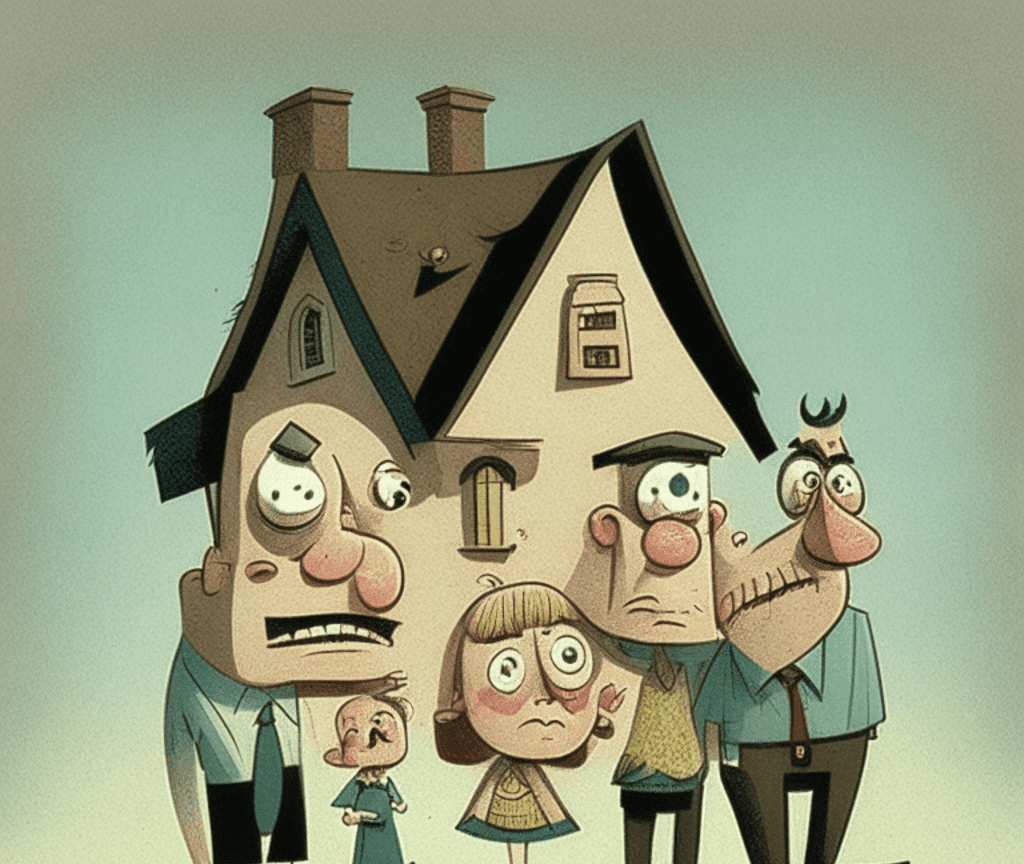
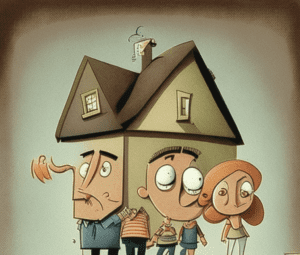
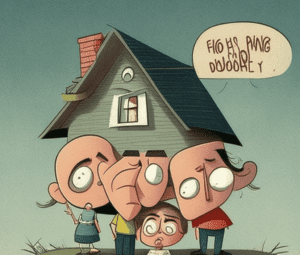
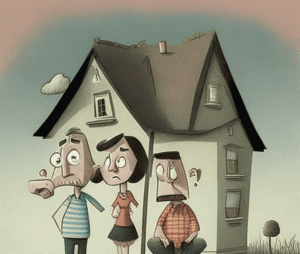
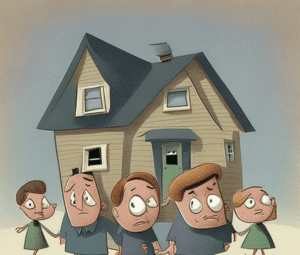
2 thoughts on “Will Mortgage Rates Go Down in usa in 2023?”